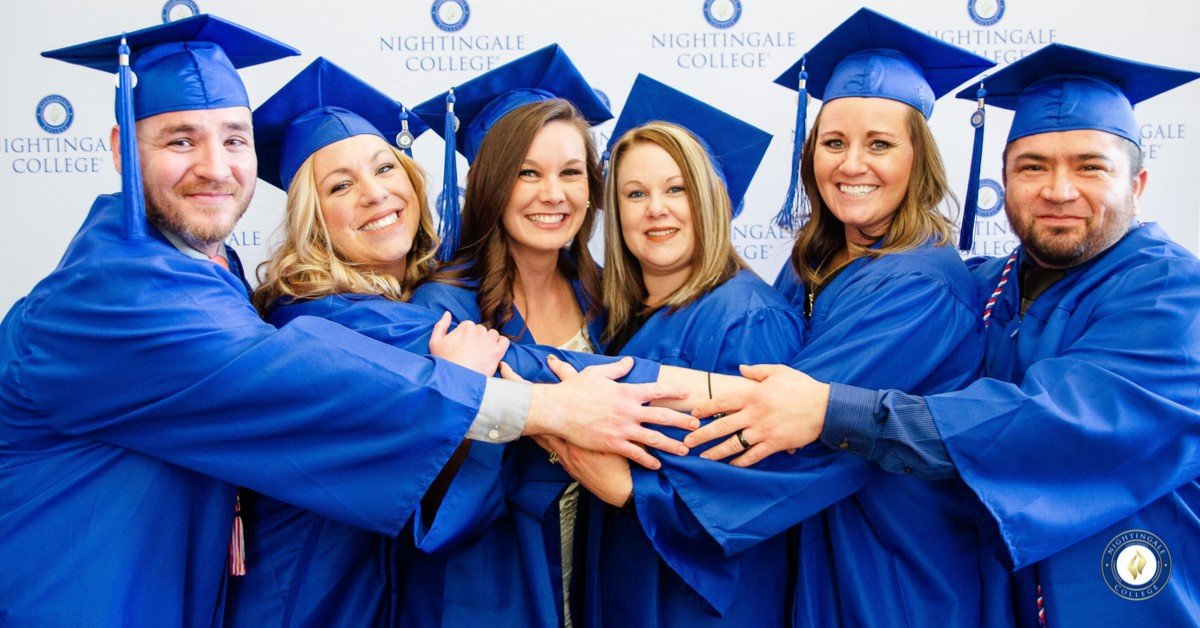How Long Does It Take to Get a BSN Degree? (And Why It May Take Less Than You Think)

Getting your Bachelor’s Degree in Nursing is an important step for your nursing career. You know by now that nurses with BSN degrees enjoy more job opportunities, better compensation, and more benefits that range from more choice over the work environment to the possibility of pursuing less stressful nursing careers.
But there’s still one question remaining on the table that leaves you wondering: How long does it actually take to become a BSN trained nurse? Especially if you have to juggle work and family, it’s vital to take into consideration how much time you actually have available for your studies and how much time you’re willing to put into getting your degree.
Truth is the amount of time it will take you to get your BSN may differ from one person to another, depending on each individual situation. However, the good news is that not only is pursuing a BSN worth it, it may also take less time than you thought it would.
In this article, we will explore the 3 different routes you can take in order to become an accredited BSN nurse and how long each BSN program will take.
How Long Does It Take to Become a BSN-prepared Nurse?
Getting your BSN and becoming a BSN prepared nurse can take anywhere from 12 months to four years.
Before you actually choose a bachelor program, you must first determine where precisely you are in your nursing career. Are you fresh out of high school thinking about becoming a registered nurse or are you already working as an RN based on previous ADN training? Did you pursue a different educational track before realizing that nursing is actually your calling? You also need to establish your personal preferences – can you manage a fast-paced program? Do you need a flexible schedule? Will you do well in an online class environment?
Answering these questions truthfully is of utmost importance because they will help you decide your next course of action and how long it will actually take to complete your BSN education.
Based on Previous Education, How Long Will It Take to Get Your BSN?
Depending on your education level, there are three different case scenarios for the amount of time you would have to invest into earning your Bachelor’s Degree in Nursing (BSN).
1. Up to 12 months to Get from ADN to BSN: Enroll in an RN to BSN Bridge Fast Track Program
If you’re a registered nurse looking to advance your career and education, your best choice to get your BSN is through a bridge fast track program.
How long does it take to go from ADN to BSN?
If you have completed your Associate’s Degree and are currently a practicing registered nurse and you want to advance your studies, your best option is to enroll in an online RN-to-BSN program. This program is specially designed for working professionals who want to elevate healthcare and it is meant to bridge the gap between your knowledge as an ADN nurse and the BSN requirements. This kind of bridge program allows learners to earn course credit based on their experience as an RN. Therefore, as a working RN, you can earn your Bachelor’s Degree in nursing fairly quickly.
The program can be completed in as few as 12 months or 3 semesters if you have not completed your General Education requirements. However, if you have completed all the GE requirements prior to enrollment, the RN-to-BSN Program can be completed in as little time as 8 months or 2 semesters.
A total of 120-semester credits are required for the conferral of the BSN degree. However, students who are already registered nurses will have completed part of these credits during their associate degree.
The Nightingale College’s RN-to-BSN program consists of 24 semesters credits of upper-division nursing coursework and 48-semester credits of general education (GE). The coursework concentrates on key nursing concepts such as community nursing, leadership, policy, ethics, health promotion, and informatics.
While maintaining rigorous academic standards, the RN-to-BSN program is designed for full-pledged nurses who have to juggle their job responsibilities, studies, and personal lives. Hence, most RN-to-BSN programs are 100% online and, therefore, career friendly.
RN-to-BSN Courses Breakdown
As mentioned above, a total of 120-semester credits are required for graduation.
The RN-to-BSN program curriculum includes post-licensure coursework that focuses on community nursing, leadership, policy, ethics, critical care, gerontology, health promotion, disease prevention, and informatics among other key nursing concepts.
The main RN-to-BSN courses that will help you become the best professional you could be are:
- General Education Courses – you will complete all necessary GE courses including English, Maths, Psychology, and others.
- Specialized Nursing Courses – you will get to study specialized nursing subjects such as psychiatry, gerontology or critical care so that you can figure out which specialty is best for you.
- Critical Thinking and Decision Making – you will get better and learn to integrate ethical, political, legal, cultural and other considerations in your decision-making process.
- Ethics and Policy – you will focus on ethical issues related to nursing to ensure a foundation of knowledge which is invaluable, especially once you access leadership positions.
- Research – you will learn how scientific nursing knowledge is gained and will acquire the means to take action against the prevalent health issues in a community.
- Technology – in a field with ever-changing technologies, you’ll need to have an updated knowledge of computer science and technology to stay current in the workplace.
Read more about what to expect from the online RN-to-BSN program from Nightingale College.
2. Up to 19 months For Non-nursing Majors: Enroll in a Direct Entry BSN Accelerated Program
If you’re considering a career change towards nursing even though initially you pursued a Bachelor’s degree in a different, unrelated field – good news is you can do it, BSN degrees are not reserved only for RNs. Your best choice is to enroll in a direct entry accelerated BSN program – as long as you already have a completed Bachelor’s degree.
How Long Does an Accelerated BSN Program Take?
Depending on the program you choose, completing an accelerated BSN Program can take between 12 to 19 months (although some can even be 2 years). During this time students will focus intensively on nursing coursework, with particular attention drawn to science-based courses, such as anatomy and physiology, microbiology and chemistry. Since they already completed some of the required courses (i.e. liberal arts classes) while obtaining their first degree, learners won’t have to undergo these again. Admission requirements for accelerated BSN programs are generally high – a minimum of a 3.0 GPA is required and potential learners have to undergo a thorough pre-screening process.
This kind of accelerated program is intense and can be rather challenging, with lots of material to be studied in a fairly short amount of time. In addition to the in-depth academic side, accelerated programs also include hands-on clinical experience in hospitals or other medical institutions.
Most accelerated BSN programs are available in on-campus settings, although, lately, more and more online options are becoming available. Because of the rigorous nature of the program, most students choose not to work during the duration of their studies (but that, of course, is up to each individual.)
Find out more about the differences between getting your BSN degree online, on-campus or through hybrid programs and figure out what works best for you.
3. Up to 32 months for Undergraduates: Enroll in a Direct Entry to BSN Program
If you decided you wanted to become a nurse, but you have no prior degree or ADN studies, the best course of action is to enroll in a traditional BSN program. The most popular route for admission to a BSN program is via direct entry from high school.
How long does it take to pursue a Traditional BSN program?
Generally, completing a traditional BSN Program takes around 32 months or 8 semesters, if the required General Education (GE) courses have not been completed.
In addition to all ADN classes, this program also includes BSN level classes, which will help you take your skills to the next level. You will need to accumulate a total of 120-semester credits, after which you will be required to take the licensing exam.
As a learner in the BSN Program, you will learn disease management, treatment, and prevention as well as the promotion of health from the standpoint of nursing. The curriculum, which is specifically constructed to promote career mobility in nursing, includes both liberal arts courses (which fulfill general education requirements), as well as advanced nursing classes, which will grant you with the advanced set of skills that will prepare you for a successful nursing career.
By enrolling in the traditional BSN program, graduates will have a full understanding of nursing core concepts that go beyond what was taught in the ADN Program.
Online students have more control over how soon they graduate with a BSN. There are numerous online accelerated programs that allow them to complete their studies in a shorter amount of time. However, these accelerated programs are definitely more challenging, so you must ensure you are willing to put more time and effort into it.
Find out more about how you can get your BSN degree, including details about the curriculum, costs and benefits for each educational path.
The Advantages of Earning a BSN Degree

Besides the many benefits it brings to patients and health centers, the BSN degree also presents a number of advantages for nurses themselves. Among these, some of the most noteworthy are:
- Numerous studies prove that BSN prepared nurses are linked to better patient outcomes, fewer medical errors and lower mortality rates.
- Having a BSN provides you with more opportunities including some of the highest-paying jobs in the industry.
- Earning a BSN is slowly becoming standard among registered nurses, with over 50% of new entry nurses having earned a Bachelor's or higher degree and 71% of RNs currently having a BSN, according to the American Association of Colleges of Nursing (AACN).
- Nurses who hold a BSN degree have higher salaries. Advancing your education is normally followed by an increase in compensation. That is also true in the case of nurses. We found in our BSN salary study an average salary for BSN nurses is $101,100 per year or $48.60 per hour. That’s $12,090 more than the mean salary of an ADN RN with the same experience, who only makes about approximately $89,010 per year. It’s worth mentioning that per the Bureau of Labor Statistics (BLS), the median annual wage of RN’s (which can be both ADN and BSN nurses) was $94,480 in 2023.
- It provides more options to advance your career later on. If you with to further your education following some years of practice, the main method is by earning an Master of Science in Nursing (MSN) degree, and having BSN-level education is a prerequisite. If you want how being a BSN-prepared nurse can accelerate your career, we have a dedicated guide on the subject.
Find out more about the advantages of earning your BSN even if you are already working as a Registered nurse.
Why Choose Nightingale College’s BSN and RN-to-BSN Programs?

Nightingale College offers two programs for aspiring nurses:
- Our fast track RN to BSN program is the best option for RNs who already completed an ADN program and are working as
a Registered Nurse. At Nightingale College, we created an online RN-to-BSN program that provides registered nurses with the opportunity of earning a bachelor’s degree
in nursing in as few as 12 months, or even 8 months if you have completed all GE requirements.
Nightingale College’s RN-to-BSN Program has 3 start dates per year that enroll in the Spring, Summer, and Fall semesters. Through this program, learners can take advantage of a 100% online curriculum. The online nature of the coursework allows them to fulfill their degree at their own pace, while also keeping a job and juggling family responsibilities. - Nightingale’s BSN program is designed for learners at the very beginning of their nursing career who have no prior clinical experience, but it also grants advanced placement for qualified LPNs. The blended-distance format of our BSN program allows learners to engage in online didactic instruction with on-ground experiential learning, which during quarantine has also moved to an online environment. Our BSN program can be completed in as few as 32 months.
Nightingale College takes the responsibility of preparing the future generations of nurses up to the highest standards extremely seriously. Our BSN Program curriculum plan meets the requirements of the Accreditation Commission for Education in Nursing (ACEN), the National League for Nursing Commission for Nursing Education Accreditation (NLN CNEA) standards, and the Commission on Collegiate Nursing Education (CCNE). The success rates are also a good indicator of how strong the program is. And with an overall NCLEX pass rate of 89%, as presented in the college performance data, we have demonstrated dedication and an ability to prepare nurses for their licensure and success in their career.
Find out everything you need to know about the two different types of institutional accreditation: national and regional, as well as other things you have to consider when selecting the right college or university.
At Nightingale College, you have no waitlist and you are able to learn through online modules for lectures accessible on any computer, tablet, or mobile phone. This means you don’t have to travel to a location for your classes as an on-campus program would require from you. It also means you can study at your own pace, and therefore, you have more control over how long it will take you to graduate.
Ultimately, how long it takes to get a BSN degree is up to you. But it is certainly worth it putting in the effort and taking the time to advance your education. If you’re a dedicated, passionate learner you will discover that getting your BSN may take even less time than you thought!
Enroll in our online RN-to-BSN program and advance your nursing career in as few as 12 months.
Do you want to pursue a career in nursing? Follow your heart and get your BSN degree in 32 months.


